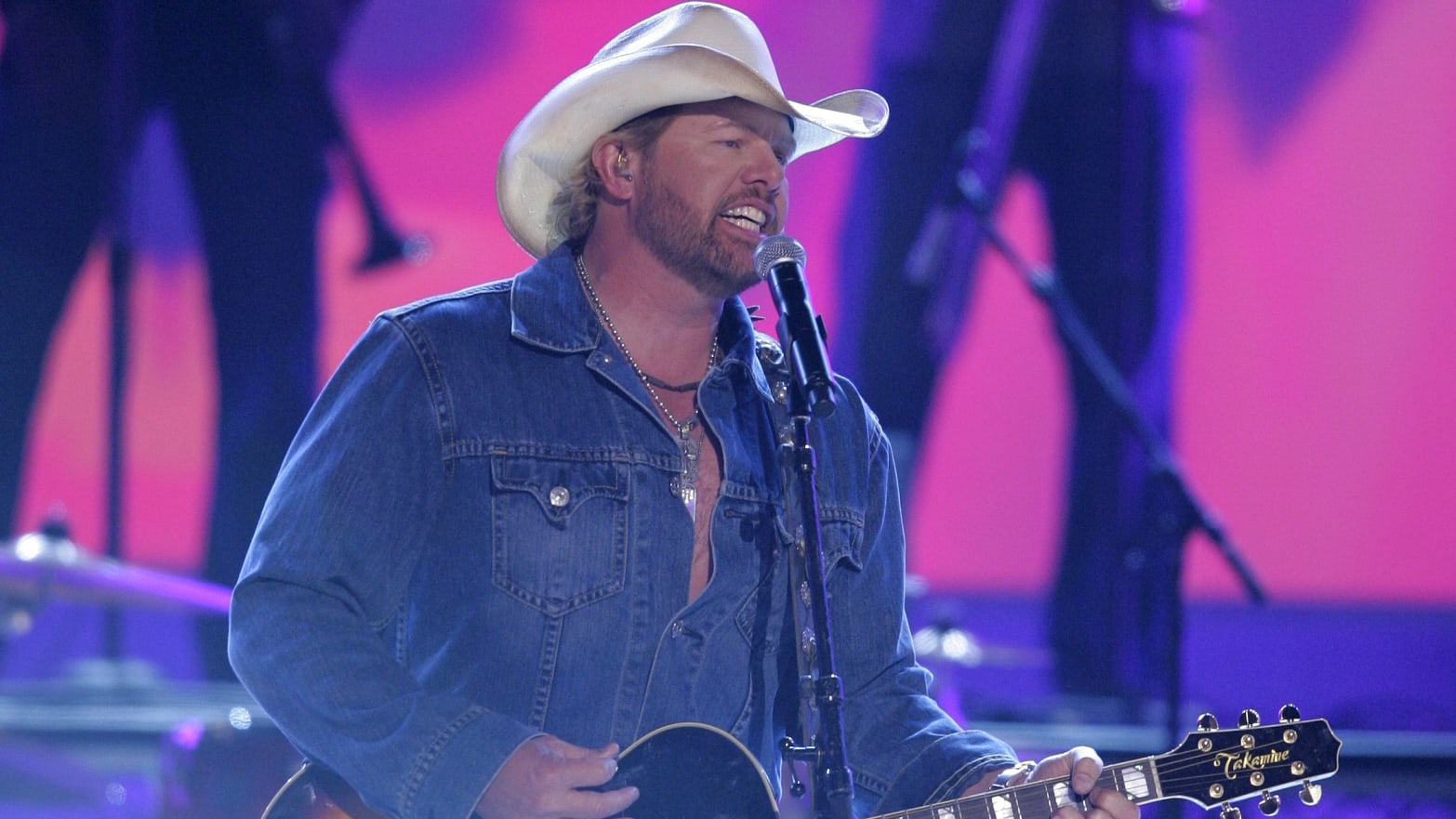About The Song
Background
Released in June 2010, “Trailerhood” by Toby Keith became the lead single for his album “Bullets in the Gun.” The song quickly gained popularity, reaching number 19 on the US Billboard Hot Country Songs chart and number 97 on the Billboard Hot 100. “Trailerhood” marked a return to Keith’s signature style after a period of experimentation with rock and pop influences on previous albums.
Musical Style
“Trailerhood” is an upbeat, energetic country song with a driving tempo and a strong backbeat. The instrumentation features prominent electric guitar riffs, a steady drumbeat, and a catchy melody. Keith’s signature baritone vocals deliver the lyrics with a sense of pride and defiance. The song incorporates elements of Southern rock, particularly in the guitar work, which adds a layer of toughness to the overall sound.
Lyrics
The lyrics of “Trailerhood” celebrate the lifestyle of those who live in trailer parks. Keith paints a vivid picture of a close-knit community where neighbors look out for each other, families raise their children with strong values, and hard work is a way of life. The song acknowledges the challenges faced by those living in trailer parks, such as poverty and limited resources. However, the focus is on the resilience, camaraderie, and sense of pride that define these communities.
Here’s a closer look at some key lyrical elements:
- Celebration of blue-collar life: The song emphasizes the dignity and value of hard work. Lines like “We ain’t got nothin’ fancy, but we got all we need” and “We work our fingers to the bone, but we ain’t never ashamed” showcase the pride associated with blue-collar jobs.
- Community and family: The lyrics depict a strong sense of belonging and support within the trailer park community. Phrases like “We’re all in this together, that’s the trailerhood way” and “We watch each other’s kids, that’s the kind of folks we are” highlight the close-knit nature of life in a trailer park.
- Facing challenges: The song doesn’t shy away from the realities of living in a trailer park. Lines like “Ain’t got much money in the bank, but we got a roof over our heads” and “We might not have a mansion, but we got love instead” acknowledge the economic struggles faced by some residents.
Cultural Impact
“Trailerhood” resonated with a significant portion of the American population who identify with the blue-collar lifestyle and the values associated with trailer park living. The song became an anthem for those who felt overlooked or misunderstood by mainstream culture. It sparked conversations about social class, economic opportunity, and the importance of community.
Here’s a breakdown of the song’s cultural impact:
- Celebration of a marginalized community: “Trailerhood” gave voice to a segment of the population often stereotyped or ignored in popular culture. The song offered a positive portrayal of trailer park life, highlighting the strength, resilience, and sense of pride within these communities.
- Divisive reception: The song also faced criticism for potentially romanticizing poverty and overlooking the challenges faced by residents of trailer parks. Some critics argued that it reinforced stereotypes about social class.
- Blue-collar pride: “Trailerhood” became a rallying cry for those who identify with the blue-collar work ethic. The song resonated with people who felt their way of life wasn’t adequately represented in mainstream media.
Conclusion
“Trailerhood” by Toby Keith is more than just a catchy country song. It’s a cultural touchstone that sparked conversations about social class, community, and the value of hard work. The song celebrates the often-overlooked blue-collar lifestyle and the pride associated with living in a trailer park. While “Trailerhood” may not be without its critics, its enduring popularity speaks to the power of music to connect with a specific audience and celebrate a unique way of life.
Video
Lyrics
🎵 Let’s sing along with the lyrics! 🎤
